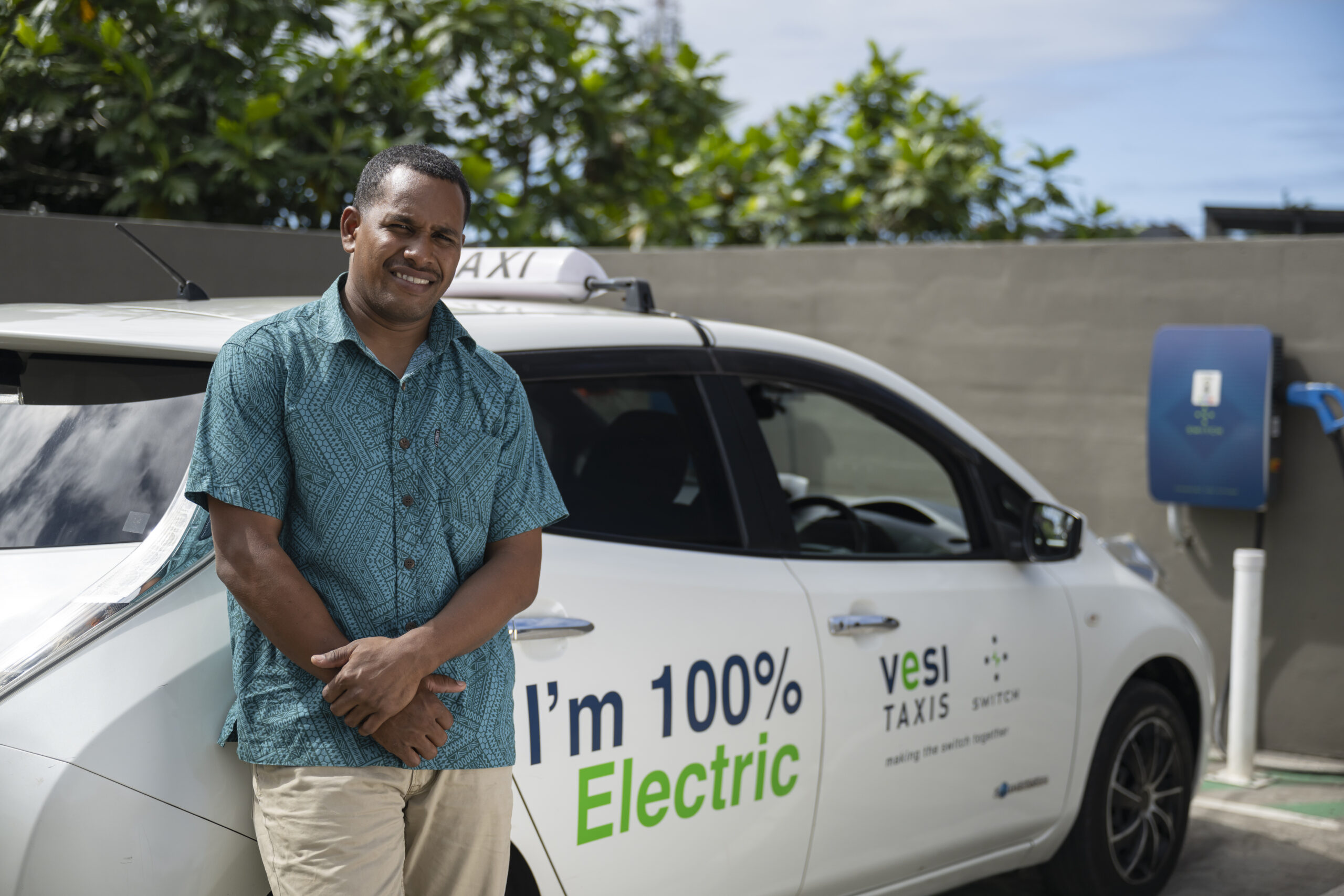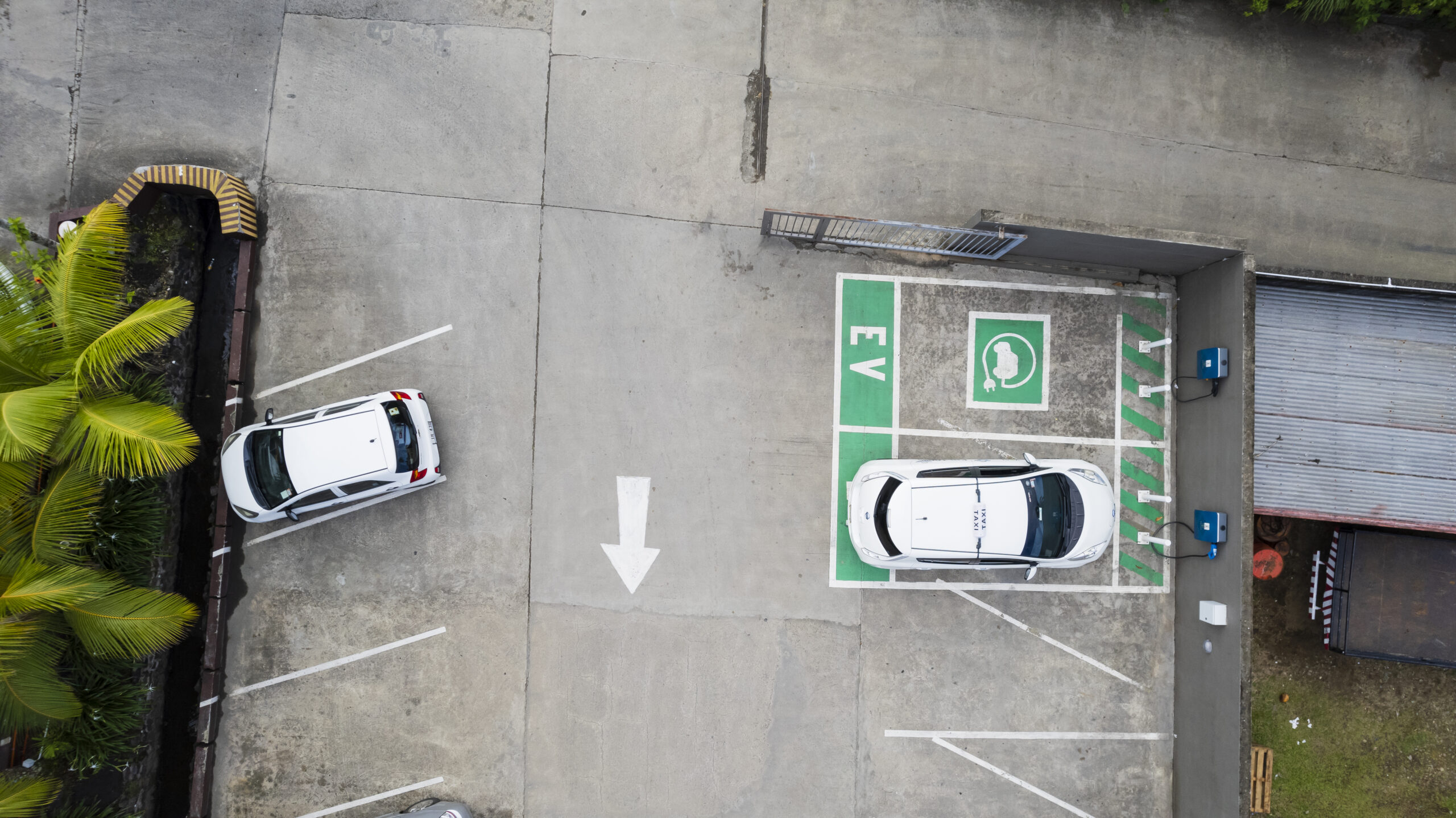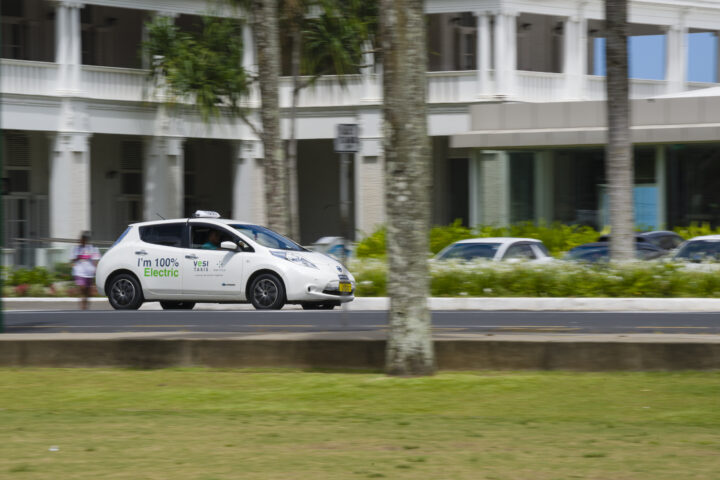Leaf Capital
Fiji
Country
Finance mobilised (USD)
230000
Solar
Technology
Greenfield
Business Type
e-Mobility
Technology
Project IRR (%)
9
GHG mitigation impact (tonnes of CO2/year)
4310

Their mission was to link up Fiji’s three main cities along the tourist hub – Suva, Nandi and Lotoka – and the space in between known as the Coral Coast, where about 60% of the tourism industry is located. They currently have several chargers operational along this stretch, with contracts signed for additional ones along the route.
Leaf Capital are among the first in the country to deploy smart DC charging. The energy goes directly to the battery bypassing the onboard inverter, allowing for a much faster charge than conventional AC. They are taking this technology one step further by matching smart DC charging with solar. During sunlight hours, the charger loads at much faster rates, with a mechanism in place to prevent any form of overload on the grid supply or the main switchboard of the host site.

PFAN helped me through the developing the models that we submitted to them, advising on the sort of approaches that would fly in this context, advising on the sort of partners who could help move to the next level. I feel that PFAN has just been sort of integrated into my team.
Getting to scale is one of the biggest issues, so understanding the financial model from a scaling perspective to understand where you can make money is a key part of this process, which PFAN helped them to achieve.
‘If you want to scale this up, what you need is a solution that allows you to charge at places where you don’t know anyone and give them the money that you owe them. And so what our technology does is allows that process and so this can be redeployed in any sphere,’’ says Alex. Once the vehicle is plugged into the charger, the driver can pay for the power directly through a mobile app.
Leaf Capital realised that to make a real difference, they had to reach high-volume users. They are targeting two large segments: the taxi industry, which is spending about 30% per cent of their operating costs on fuel alone, and intercity minibuses, some of which drive about 450 kilometres a day.
For these sectors, a savings of 15 to 20 cents per kilometre adds up quite quickly. It has the added benefit of reducing the amount spent on imported fuel and further encourages investment in locally produced renewable energy, while reducing the cost of tourism and transport – the backbone of many Pacific economies.

‘’It’s fair to say every business wants to contribute positively to the environment,’’ says David. ‘’The challenge is trying to understand how they can do that without compromising their profitability.’’
Leaf Capital operates with a partnership-based model, which means they do not own any sites. ‘’We operate with partners, we revenue share, we invest in the infrastructure and they give us the space. So we’re heavily reliant on the competence and integrity of the people we work with,’’ says Alex.
With PFAN’s support, Leaf Capital mobilised financing through two sources – a USD 100,000 grant through the UNDP Blue Accelerator Scheme and a USD 130,000 loan from the local Fiji Development Bank.
I think that PFAN having a presence on the ground through both David and my advisor, Savenaca, who are extremely experienced in the corporate sector in Fiji and the wider Pacific, was the real value added for me.

A bright idea is good, but to be able to access finance, you need to present that idea in a certain way, especially if it’s around a green intervention, and that’s what PFAN can bring to the entrepreneur.
Watch the success story of Leaf Capital


